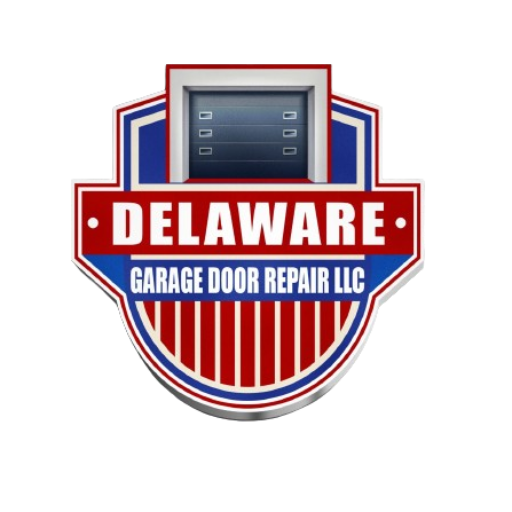
Garage Door Repair: What You Can Fix and What to Leave to the Experts
Keeping your garage door in good working order is crucial for convenience, safety, and home security. When problems arise, many homeowners feel inclined to handle repairs themselves. While some garage door tasks are simple and manageable, others involve significant safety risks and require expert knowledge. Understanding what you can safely fix on your own and when to call a professional can save time, money, and prevent injuries.
This guide breaks down everything you need to know to make smart choices about garage door repairs. Discover which tasks you can handle, which require professional expertise, and essential safety tips for working on your garage door.
Understanding Garage Door Repairs
Garage doors are intricate systems made up of springs, cables, tracks, and rollers that perform a heavy-duty job every day. Over time, wear and tear are inevitable. Some repairs require nothing more than a wrench or lubricant, but not all repairs are this straightforward. Attempting complex repairs without proper tools or training can lead to further damage or even pose serious hazards.
By identifying the repairs appropriate for homeowners and distinguishing those better left to experts, you can keep your garage door working efficiently while ensuring everyone’s safety.
What You Can Safely Handle
Some garage door issues are simple and can be addressed with basic tools and a little know-how. These minor fixes generally pose minimal risk but do require attention to detail.
Tasks Homeowners Can Perform:
- Lubricating Moving Parts:
Over time, parts like rollers, hinges, and tracks can become stiff or squeaky. Regularly applying a silicone-based lubricant keeps these components moving smoothly and reduces noise. Avoid using grease, as it attracts grime and may worsen the problem over time.
- Tightening Loose Hardware:
Garage doors experience frequent vibrations, which can loosen bolts, screws, and brackets over time. Homeowners can easily check and tighten these components with a screwdriver or wrench. This simple maintenance task helps ensure smooth door operation and prevents further wear.
- Aligning or Cleaning Photo-Eye Sensors:
If your garage door refuses to close fully, the issue might be misaligned or dirty photo-eye sensors. These sensors must face each other and stay free of obstructions to work properly. Wipe them clean with a soft cloth and ensure they’re properly positioned at the same height.
- Replacing Remote Batteries:
Often, a garage door opener that won’t respond simply needs new batteries. This is a quick task anyone can manage with minimal effort.
When to Call in the Professionals
Certain garage door repairs are complex, dangerous, or require specialized tools and expertise. Attempting these repairs yourself can result in significant injury or damage to your garage door system.
Repairs Requiring Professional Attention:
- Broken Springs:
Garage door springs—whether torsion or extension—are under high tension to counteract the door’s weight. When they break, they can snap with immense force, causing serious injury. Professionals have the tools and training to replace them safely.
- Frayed or Broken Cables:
Cables work in tandem with the springs to lift your door. If they’re worn or broken, the entire weight of the door becomes unsupported, creating significant safety risks. Cable replacement should always be handled by a professional.
- Malfunctioning Opener Motors:
Diagnosing and repairing motor issues requires a deep understanding of electrical systems. From motor failure to circuit board damage, these tasks should be left to a garage door technician.
- Track Misalignment or Significant Dents:
If your garage door jerks or won’t open smoothly, it could be due to misaligned or severely damaged tracks. Proper realignment requires precision and specialized tools that only experts possess.
- Door Panel Replacement:
Whether it’s due to physical damage or weather-related wear, replacing door panels requires precision to match size, material, and balance. Improper handling can affect door functionality.
Safety Tips for Garage Door Repairs
Safety should always come first when working on garage doors. These are large, heavy objects, and mishandling parts can lead to accidents. Follow these tips to make your repairs safe and successful.
Disconnect Power Before Repairs:
Always unplug the garage door opener or turn off the circuit breaker before starting any work. This prevents the door from moving unexpectedly while you’re handling it.
Use the Right Tools and Equipment:
Stick to proper tools designed for the job to avoid injuries or damage. Makeshift solutions can create more problems than they solve.
Work with a Partner:
For tasks involving heavy or awkward components, ask a partner for help. Managing certain parts alone can be difficult and risky.
Avoid Working on Springs and Cables:
These high-tension components are dangerous to handle. If they’re causing issues, it’s best to call a professional.
Wear Safety Gear:
Use gloves to protect your hands, safety goggles for your eyes, and avoid loose clothing that could get caught in moving parts.
Test Repairs Carefully:
Once repairs are done, test the door’s movement in small steps to ensure everything is aligned and functioning properly. Watch for unexpected behavior and proceed cautiously.
Final Thoughts
Fixing a garage door can often be simple—if you know your limits. Tasks like tightening bolts, lubricating hinges, and cleaning sensors are safe for homeowners, but more complex repairs can pose safety risks. That’s where Delaware Garage Door Repair comes in. By calling in trusted professionals when needed, you can keep your garage door in great shape while avoiding unnecessary dangers.
When in doubt, don’t hesitate to contact Delaware Garage Door Repair for expert assistance. Regular maintenance and timely repairs are essential to ensuring your garage door runs smoothly for years. With smart decisions and proper care, you can save money and stay safe.
